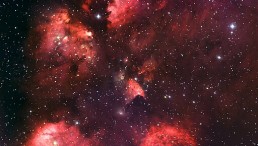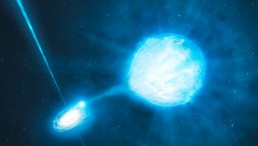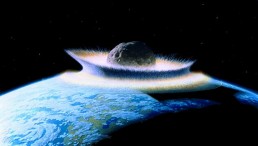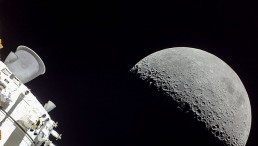Humans cannot smell space directly because our noses do not work in a vacuum. However, astronauts returning from space missions often describe unexpected scents like burnt steak and spent gunpowder.
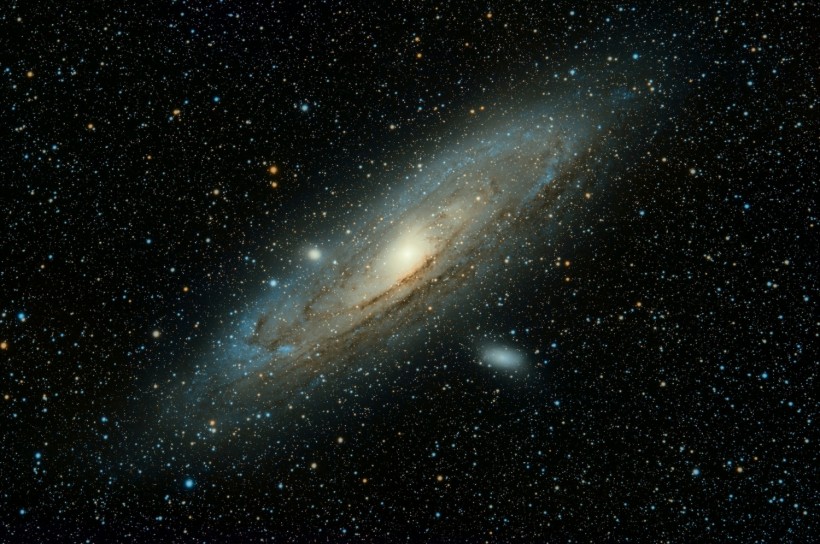
Scent of the Cosmos
Space is full of cosmic voids but not an absolute vacuum. This means that different parts of the universe contain different molecules formed in stars. These particles usually get stuck onto astronauts' space suits and can be smelt when they return.
Astronauts regularly catch a whiff of a unique smell after removing their helmets. At the same time, their compatriots also notice this odor wafting in when the airlock doors of their spacecraft are opened. After his 2009 spacewalk, NASA astronaut Dominic Antonelli described that space has a different scent.
This smell of space is often compared to spent gunpowder, hot metal, burnt cakes, burnt meat, and metal welding. Meanwhile, former NASA astronaut Thomas Jones compared this smell to ozone. While astronauts smell something different, they all agree that space stinks.
Other cosmic bodies are also found to have their distinct smell. For instance, the smell of bitter almonds, rotten eggs, and cat urine was detected from the surface of comet 67P/Churyumov-Gerasimenko.
The center of the Milky Way is believed to smell like raspberries, while regions outside our galaxy can have more distinct smells. In other parts of the universe, molecular clouds full of tiny dust particles host various odors, from sugar wafts to the rotten-egg smell of sulfur.
The smells of space are important because they can give us information about the chemical composition of the Solar System and reveal the secrets of our galaxy.
READ ALSO: Human Beings Can Incredibly Smell One Trillion Scents Except Smell Their Own Even When They Stink
Causes of Stinky Cosmic Odor
There are various explanations for this unique odor. The first one has something to do with oxygen that floats around the International Space Station. The oxygen molecules made of two atoms are split into single atoms by the ultraviolet light from the Sun. The atomic oxygen clings to airlock walls, spacesuits, and other objects exposed to space. This triggers chemical reactions, such as ozone formation, that could explain the odor.
Another theory relates the smell to stellar explosions, which occur when a star dies. The outbursts generate smelly molecules called polycyclic aromatic hydrocarbons, the same compounds found in Earth's oil, coal, food, and other materials. According to Louis Allamandola, the founder and director of the Astrophysics and Astrochemistry Lab at NASA Ames Research Center, these molecules seem to be present all over the universe. They have even been assumed to be the basis of Earth's earliest forms of life.
Allamandola also explains that the Solar System is pungent because it is rich in carbon and low in oxygen. He compares it to a car, which, when starved of oxygen, will release black soot and emit a foul smell. On the other hand, oxygen-rich stars have aromas similar to a charcoal grill.
RELATED ARTICLE: Humans' Sense of Smell Degrades Due To Mutation in Scent Receptors Causing Less Sensitivity To Body Odor
Check out more news and information on Outer Space in Science Times.



![Humans Will Go Extinct on Earth in 250 Million Years; Mass Extinction Will Occur Sooner if Burning Fossil Fuels Continues [Study]](https://1721181113.rsc.cdn77.org/data/thumbs/full/53373/89/56/50/40/humans-will-go-extinct-on-earth-in-250-million-years-mass-extinction-will-occur-sooner-if-burning-fossil-fuels-continues-study.jpeg)






